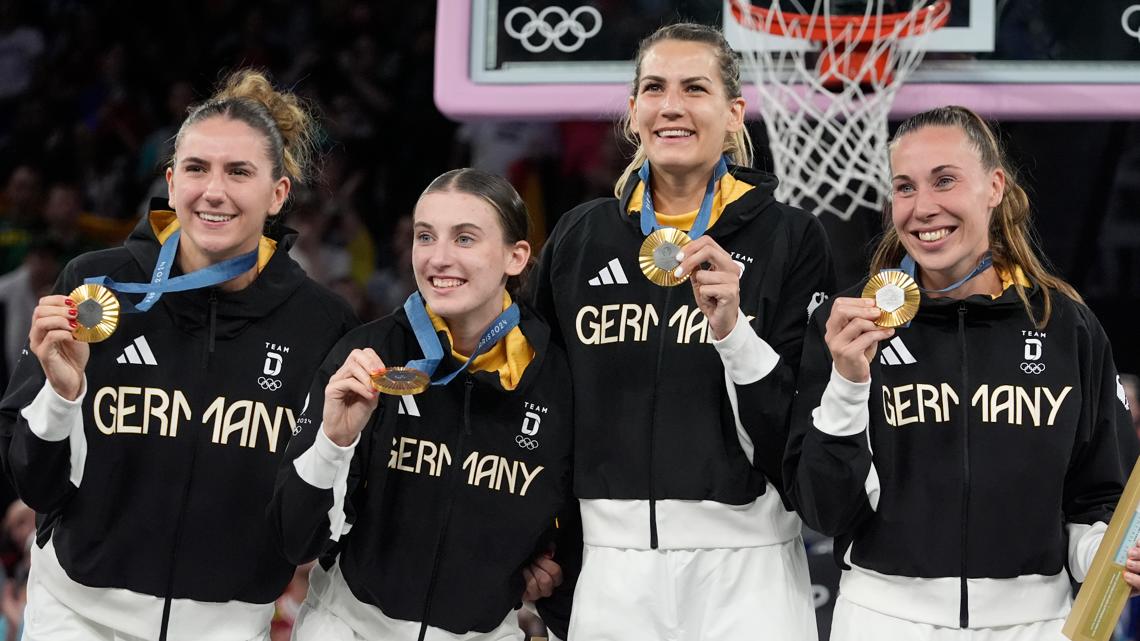Germany’s 2024 Olympic medal tally has reached a historic low, sparking concern and calls for significant changes to reverse the downward trend. The German team finished tenth in the medal standings at the Paris Olympics, a drop of one place from Tokyo, marking the country’s worst performance since 1952.
With only 33 medals, including 12 golds, 13 silvers, and eight bronzes, the results highlight a continuing decline. For context, the previous Olympics saw Germany win 37 medals, while in 1996 in Atlanta, the count was 65. The team narrowly met its pre-set goal of finishing in the top ten, but clearly, more needs to be done to reclaim Germany’s standing on the world stage.
Investment in sports infrastructure and talent
Olaf Tabor, the sports performance director at the German Olympic Sports Confederation (DOSB), acknowledged the disappointing outcome, stating that the goal was to achieve much better results. To turn the tide, he advocates for significant investments and reforms, including the establishment of an independent sports agency by 2025. This agency would streamline support for elite athletes, reducing bureaucracy and increasing flexibility to help foster future successes.

The German government and DOSB are on board with this plan, confirming their commitment to modernizing and making the sports funding process more efficient. However, simply establishing an agency won’t guarantee a return to Olympic glory. There are several underlying issues that need addressing.
The decline in sports appreciation and talent scouting
One major problem is the lack of societal appreciation for sports in Germany, according to Professor Ingo Froböse of the German Sport University Cologne. He argues that, unlike in the USA, where sports can elevate a person’s social status and provide recognition, Germany doesn’t fully recognize the role sports play in personal development. This lack of appreciation also hampers the search for new talent, as systematic talent identification in schools has diminished over time.
Without early encouragement and opportunities for competition, fewer children are motivated to pursue sports seriously, leading to a dwindling pool of young athletes. As a result, the discovery of potential future Olympians is stifled, with sports often treated as a secondary subject in schools.
The exodus of talent to other countries
Another challenge is the migration of both athletes and coaches to countries like the United States, where they can pursue sports careers full-time without needing secondary jobs. The volunteer-based sports system in Germany, while commendable, lacks the professional structure necessary to compete at the highest levels. This has led to top talents like sprinter Gina Lückenkemper and decathlete Leo Neugebauer training in the U.S., where they enjoy better facilities and recognition.
The U.S. dominated the Paris Olympics with 126 medals, highlighting the stark contrast in sports infrastructure and support between the two nations. Neugebauer’s silver medal in Paris is a testament to the high level of training he received in the U.S., underscoring the advantages that come with being part of a well-funded, athlete-centric system.
The need for better incentives
Germany also faces challenges in incentivizing its athletes. With a gold medal bonus of just €20,000, German athletes are far behind their counterparts in countries like Malaysia, Morocco, and Serbia, where rewards exceed €184,000. Even within Europe, nations like Italy, Hungary, and Lithuania offer six-figure bonuses for Olympic golds. For Germany to attract and retain top talent, competitive financial incentives are crucial.
Overcoming the mental hurdle
In Paris, several German teams faltered in crucial matches, raising questions about the country’s mental toughness in high-stakes situations. Whether it was the handball team’s loss to Denmark or the hockey team’s dramatic defeat by the Netherlands, the pattern was clear. Only the 3×3 basketball women’s team managed to secure a gold medal, prompting the DOSB to reflect on whether Germany has a mentality issue that needs addressing.

The way forward
Germany has four years until the next Summer Olympics in Los Angeles to make significant strides toward regaining its former glory. One initiative aimed at reversing the trend is the Potenzialanalysesystem (PotAS), which has been in place since 2016 to identify sports with the best chances of winning medals. However, recent results have cast doubt on its effectiveness, with surprising outcomes like the basketball team’s World Cup win and the athletics team’s failure to secure any medals in Budapest.
Despite these setbacks, Interior Minister Nancy Faeser has announced plans to refine and integrate PotAS into the newly proposed sports agency, ensuring that it remains a cornerstone of Germany’s Olympic strategy.
To truly turn things around, Germany must tackle these issues head-on, from increasing sports funding and improving talent scouting to providing better incentives and addressing the psychological aspects of competition. Only by doing so can the country hope to climb back up the Olympic rankings and restore its reputation as a sporting powerhouse.









